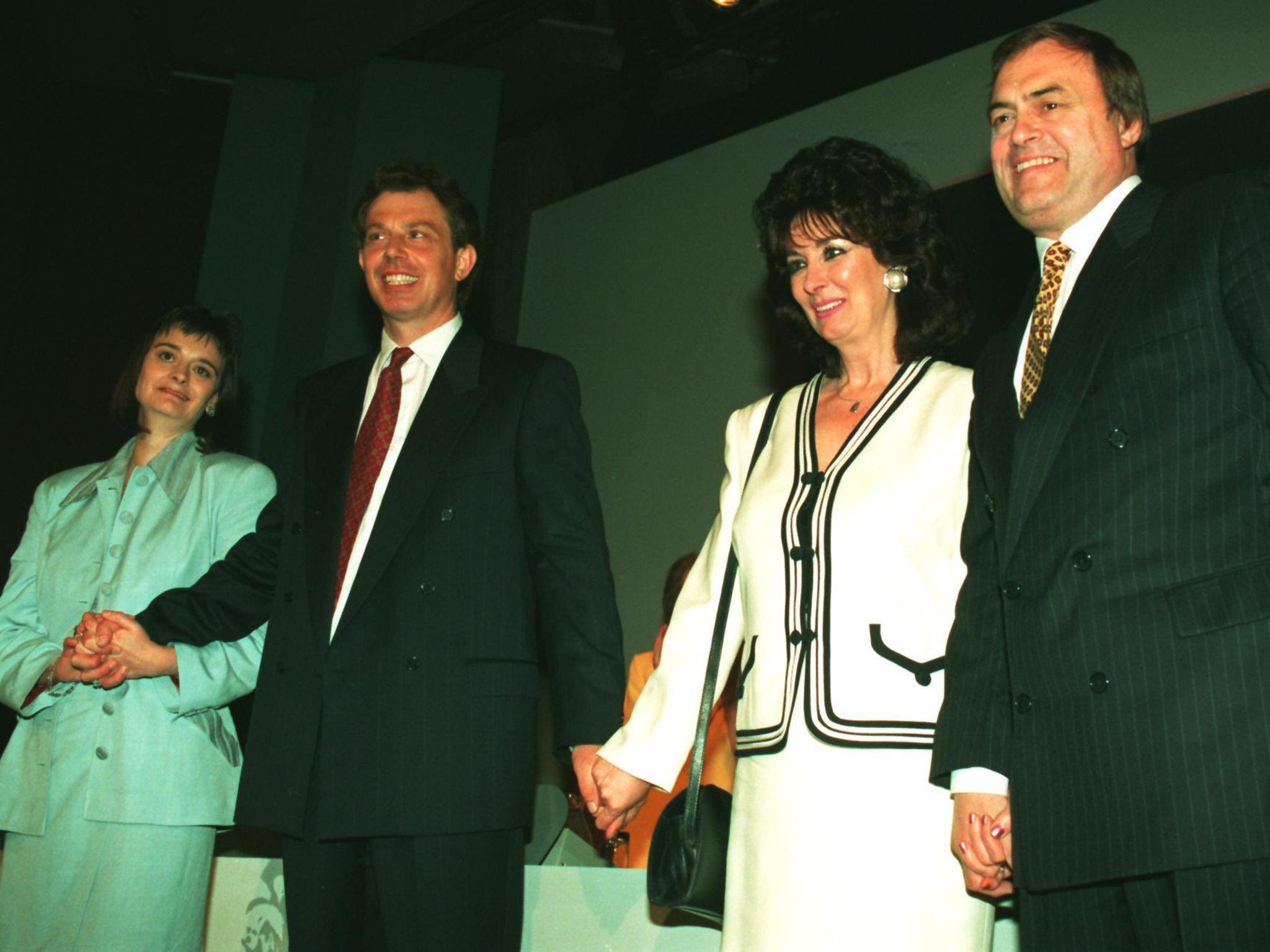I wrote the book on the secret to New Labour in the Nineties – this is what the centre left needs to do to repeat that success
It’ll take more than 100,000 new people joining the party for a modernising candidate to really be confident about breaking through the party’s internal ‘red wall’ says Richard Carr


Your support helps us to tell the story
From reproductive rights to climate change to Big Tech, The Independent is on the ground when the story is developing. Whether it's investigating the financials of Elon Musk's pro-Trump PAC or producing our latest documentary, 'The A Word', which shines a light on the American women fighting for reproductive rights, we know how important it is to parse out the facts from the messaging.
At such a critical moment in US history, we need reporters on the ground. Your donation allows us to keep sending journalists to speak to both sides of the story.
The Independent is trusted by Americans across the entire political spectrum. And unlike many other quality news outlets, we choose not to lock Americans out of our reporting and analysis with paywalls. We believe quality journalism should be available to everyone, paid for by those who can afford it.
Your support makes all the difference.With Jo Swinson, David Gauke and Anna Turley out of parliament, it seems the centre can no longer hold. Should Jeremy Corbyn manage to pass the Labour leadership over to a pliable left-wing successor, that case will only get stronger. Far from being “Britain’s Trump“, by mid 2020, Boris Johnson’s pro infrastructure agenda may dominate the nominal centre ground of British politics. Whatever the divisiveness of Brexit, arguably it already does.
But we should not be fooled. Johnson is not an idiot, but that does not make him a moderate. As Tony Blair has argued, “The problem is not that Boris Johnson and the Tories have succeeded in broadening their One Nation appeal…but that Labour has driven millions of voters away.” In my recent book, March of the Moderates, I show how New Labour in the UK and the New Democrats in the US won such voters back in the 1980s and 1990s, and a similar period of renewal is needed today.
Right up front, the British centre left needs a new, charismatic leader. Rebecca Long Bailey may or may not be continuity Corbyn in terms of policy, but just as big a worry is that she represents continuity Miliband in terms of charisma. For all the drama of the last three and a half years, let’s not reimagine the coalition parliament. For over four years, Labour members had to try and talk themselves into believing Ed Miliband was the real deal. But general election cycles aren’t some Nineties high-school movie where the bookish girl removes her glasses at the end to suddenly reveal a Hollywood beauty.
Among the wider public, perceptions are ingrained accurately and early. For most voters, if a leader looks unconvincing and awkward, they probably are. It’s become a bit of a truism that Labour needs “a new national story”. That’s correct – but it needs to be told in a comprehensible manner. We might need less redistribution in the next manifesto, but also less wonkish talk of “pre-distribution” before it.
Secondly, whoever they are, this new leader will need clarity. Johnson’s key priorities were clear. Get Brexit done, no headline tax rises, and reversing the Cameron cuts to public services. In this regard, it was a somewhat undramatic rehash of New Labour’s 1997 pledge card. He repeated this mantra robotically, albeit with a level of charm that exceeded Corbyn’s ratty request to interviewers to let him “finish”. But its simplicity allowed this charismatic performer to talk in generalities and mood music elsewhere. Benjamin Disraeli’s 19th-century call for “above all, no programme”, was echoed perfectly by the man who now claims his One Nation mantle.
In contrast, Corbyn threw a nationalised kitchen sink at the electorate. £14bn for eliminating the fees of upwardly mobile students was a regressive and expensive policy. A combined £58bn for all the Waspi women looked like a desperate post manifesto Hail Mary pass. In the end, Labour was stumbling around the battlefield, looking for interest groups to say “yes” to. Socialism is the language of priorities, not out and out bribery.
A few deliverable priorities should be sketched out by any new centre-left leader, not an endless list of worthy stuff. In 1992, Bill Clinton had expanding the earned income tax credit. Five years later, Tony Blair introduced the national minimum wage. You get two or three of these radical changes where having the argument can show your party’s steel. Any more and they lose their value.
The good news is the initial solution here is relatively easy. Find some of the many radical policies in the latest manifesto and repudiate them. Deal with the antisemitism crisis ruthlessly. Reaffirm Labour’s commitment to Nato, and its willingness to use troops abroad. That’s a start. It was, after all, his willingness to challenge his own side that muted the right-wing media’s claims that mid-Nineties Blair was a lightweight “Bambi”. Because of his courage, they were forced to pivot to the claim was that he was all about “spin” – read: too good at politics.
Thirdly, the media of course matters, but you need to listen to the right channels. Owen Jones is now 0-3 at general elections. Aaron Bastani thought the cost of Labour’s nationalisation programme equated to a single footballer. The Institute for Public Policy Research has intellectually walked off a cliff. And, like boxer Andy Ruiz, Novara and their ilk have relentlessly partied off the back of one surprising result. That opponent came back better and stronger, and the natural order was re-established. And, hell, Corbyn didn’t even win the first fight.
The truth is that moderate politics involves a degree of continuity rather than only tearing everything down. Clement Attlee expanded the wartime Emergency Hospital Service into the NHS, and used William Beveridge’s work to inform the welfare state more generally. Wilson used the Tory national economic development council to shape industrial strategy, and the Robbins report to expand the University sector. Blair worked with the trade union architecture of the Thatcher years, and, eventually, the public service reforms of John Major. These leaders didn’t “f*** off and join the Tories”, but reshaped the world through cross-party institutions. The alternative is thinking you are correct about everything, and the recent election shows the consequences of that.
These, then, are a few suggestions. More charisma. Better clarity. New channels. And, of course, some coordination. It’ll take more than 100,000 new people joining the Labour Party for a modernising candidate to really be confident about breaking through the party’s own internal “red wall”. Longer term, just as the Democratic Leadership Council paved the way for Clinton’s victory in 1992, the modern day centre left will also need a vehicle around which to cohere intellectually. None of this is easy. The alternative, however, is all too clear. British democracy needs a revivified centre left.
Richard Carr is a lecturer in history and politics at Anglia Ruskin University, and author of the book ‘March of the Moderates: Bill Clinton, Tony Blair and the Rebirth of Progressive Politics’, (IB Tauris, 2019)

Join our commenting forum
Join thought-provoking conversations, follow other Independent readers and see their replies
Comments